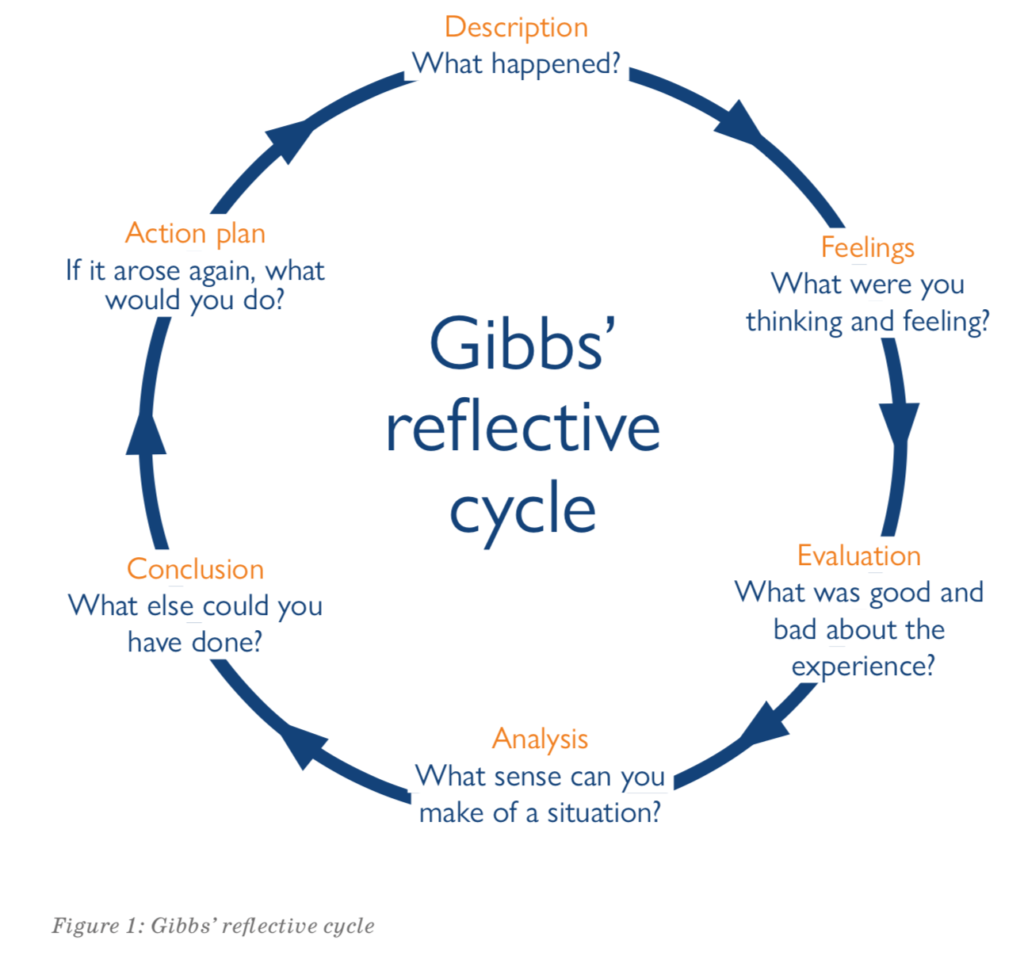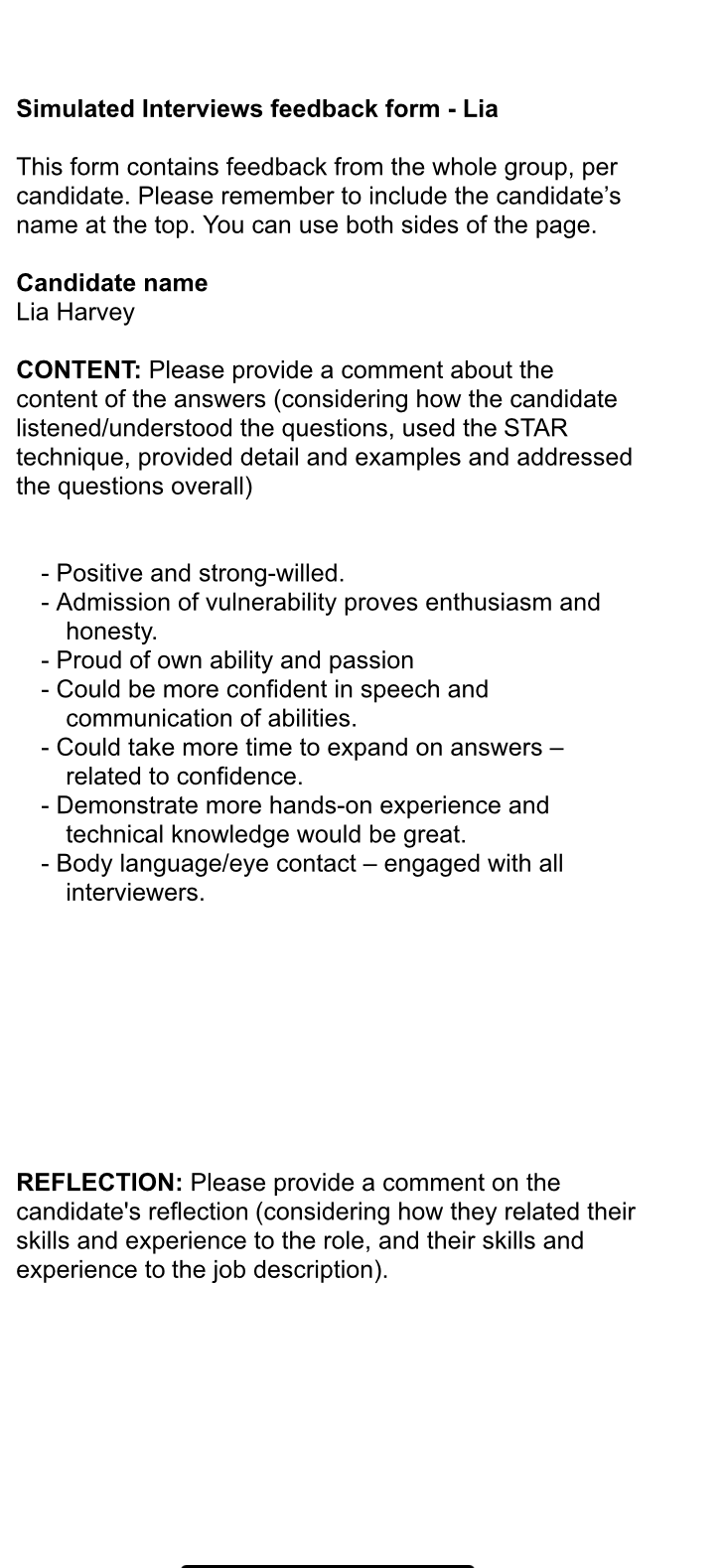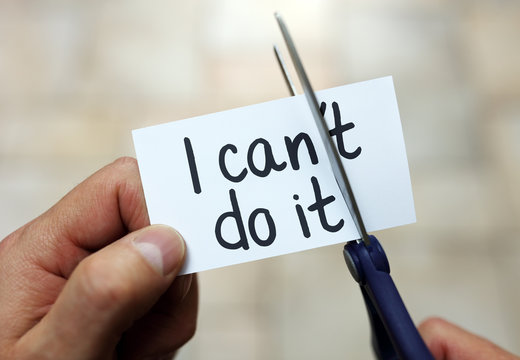
The job interview – the classic staple of recruitment, a tried and true method for a company to narrow down the best candidates who’ve applied to their post… and the absolute worst nightmare of anyone who lives with crippling social anxiety like myself. Unfortunately, if you want to end up in employment, these situations are unavoidable, which is why we were set the task of completing a simulated interview in a group of our peers for our work placement module. I’ll admit that leading up to the interview, I was sweating, shaking, tossing and turning, thinking about how I was going to be placed on the spot, expected to give rapid-fire answers to my peers’ questions designed to quiz me on every aspect of my chosen job listing as a video editor and camera operator. Would I choke? Would I stutter? Would I end up saying the wrong thing, leading to everyone looking at me as if I had forty heads, leaving me silently praying to any higher being I could think of to have the floor swallow me up where I sat? These thoughts uncontrollably raced through my head like a rollercoaster with its brakes ripped out, especially with the added pressure of having to speak in front of the people I see in class every day. Whether I wanted to or not, I had to prepare myself for this interview and give it my all, reassuring myself with the great words of comfort spoken by many before me – “at least this isn’t graded!”
I have decided to use Gibbs’ Reflective Cycle to assist me with my personal reflection upon my performance. I have used it previously when reflecting upon difficulties faced during my time in placement with success, and it provided a helpful path when thinking of future courses of action when dealing with similar situations. As it has worked for me before, it feels appropriate to reuse in future situations, as it is intended to be reused over and over again, creating the cycle to allow for opportunities to learn from any difficult situation.

“The model is prescriptive, and focuses closely upon a single event: what was thought and felt, what sense can be made, and what developmental action can be taken.” (Bolton 192)

Furthermore, writing about my experiences in this blog format or in a personal notebook would be very helpful for when I tackle an interview in the future, and I can choose to look back upon it through the lens provided by Gibbs if I feel that the situation could potentially reoccur.
“The use of writing also captures the initial event in a way that enables it to be the basis of continuing and more developed reflection. Very often, when an event is reflected upon, the original event becomes shaped or coloured by that later reflection, so that it becomes obscure and is sometimes lost.” (Boud 63)
Description
To start off the simulated interviews, we were placed into groups of four, where we would take it in turns to interview each other for our chosen roles in the broadcast industry. One of us at a time would leave the room to prepare, while the other three members of the group would brainstorm appropriate interview questions. We would then ask these questions, then complete a feedback form based upon the individual’s performance. During my interview, although it was a bit of a rush all at once, I was able to admit to the panel that I felt anxious whilst answering, although I was admitting to a vulnerability, this made me appear more relatable and human beneath the professional exterior I was attempting to create around me. As a result, they completed a feedback sheet for me which looked like this:

Feelings
I was able to feel reassured fairly quickly as I was able to see that the rest of my group were also feeling anxious about the interview. As I knew that I wasn’t alone I felt far more at ease when answering, although I felt disappointed in myself upon reading that they were able to notice how nervous I was to the point that it was noted in my feedback form. Looking back at the situation now however, I can see that I was talking quickly as a fear response towards being seen as waffling and taking up too much time. This is a significant feeling for me in general, as I tend to speak with the intent of explaining exactly what I mean to prevent confusion, which means I can subconsciously rush while talking. I can also feel defeated at times upon hearing feedback, despite its role to help me improve upon my work instead of it being an attack on me personally, as I end up focusing on the negatives too heavily.
Evaluation
This experience provided various positive experiences, for instance, it gave me an opportunity to plan out interview skills for a potential job interview in the TV and broadcast industries, which I intend to work for in the future. Any sort of experience in understanding how to work in these industries is highly valuable to me as a result, and getting this feedback into how exactly I’ve performed is a very beneficial tool for me, for reflection purposes and to prepare in future for whenever this situation pops up again. However, there were some negative experiences, in particular the anxiety and worry surrounding the preparation for the simulated interviews. When I have interviewed for part-time jobs, although I would feel nervous naturally, it would not be to the same extent as I did when having to interview and appear vulnerable in front of my peers. The social dynamic between my classmates and an interviewer both highly differ from each other, as I know that if I am not successful in an interview, I’ll likely never have to see the interviewer again, whilst I have to spend time with my classmates on a fairly regular basis. This definitely contributed towards my nervousness I felt going into the simulated interview.
Analysis
I think that the simulated interview went well, as my peers were able to see my passion and positivity when it comes to working in the TV and broadcast industries, successfully demonstrating a part of myself which I am proud for others to be able to see. I also presented myself in an appropriate manner, dressing in a baggy black jumper and jeans, following the unspoken formal-casual dress code expected in job interview settings. I feel like I could have prepared myself better for answering the questions that were provided to me, for instance, I could have provided a lot more examples of my previous work to discuss, as employers will usually hire based upon skill and experience. An alternative course of action which I could have taken in order to help me remember more examples of my previous experience would be to create a detailed portfolio of my work to keep it all together, as well as to create a concise point of reference for myself and for potential employers.
Conclusion
If I were to redo the simulated interviews, one thing that I would do differently would be to create a plan for what questions I could potentially be asked, as well as carry out my own research into the specific company and its values. This was something that I observed my peers doing in their own interviews, demonstrating that they had the passion to earn the jobs that they were seeking out. I can learn from how they approached the exact same position of the job interviewee that I was in, and aim to emulate similar energy to them. I need to have a lot more confidence in myself and my work, as I believed that my skills and experience were far poorer than how my peers saw them, as they commented that I was “positive, strong-willed, proud of own ability and passion.” This has reassured me when reflecting upon my simulated interview as it serves as a reminder that it did not go as badly as I thought it would in my head, which means I need to ignore those negative thoughts in order to succeed.

Action Plan
If I encountered this situation again, I would have a lot more confidence in myself, come prepared with a detailed plan and portfolio, and I’d take my time, talking more slowly and including more details to allow the panel to get to know me better. I need to believe in myself a lot more and really give myself credit for my work whenever it is due, as I have achieved a lot, which I definitely want my employers to be able to learn about me from my time in an interview from them. I would like for them to see my passion for the industry as a whole, so I should keep my lessons learnt from my simulated interview experience in mind for those scenarios.
Works Cited
Bolton, Gillie and Russell Delderfield. Reflective Practice: Writing and Professional Development. 5th ed., SAGE, 2018, pp. 192.
Boud, David, et al. “Promoting Reflection in Learning: A Model.” Reflection: Turning Experience into Learning, Routledge, 2013, pp. 63